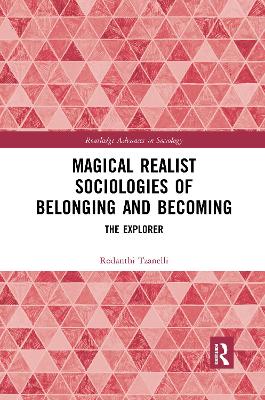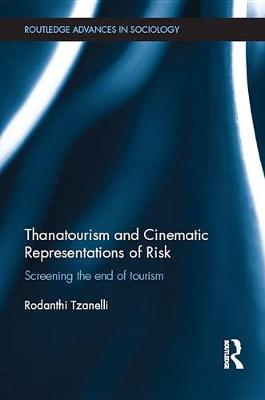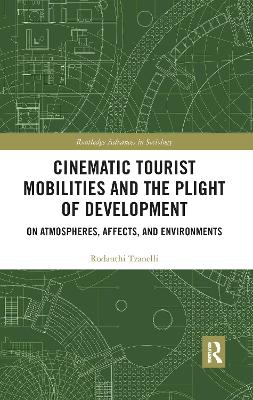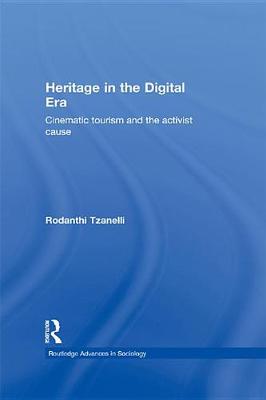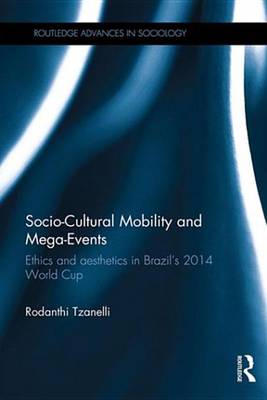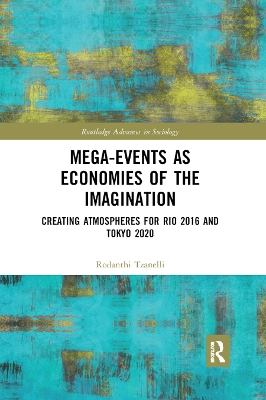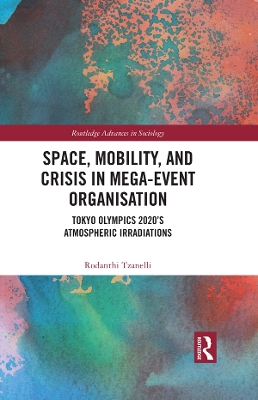Routledge Advances in Sociology
7 total works
Magical Realist Sociologies of Belonging and Becoming
by Rodanthi Tzanelli
At the bottom of the sea, freedivers find that the world bestows humans with the magic of bodily and mental freedom, binding them in small communities of play, affect and respect for nature. On land, rational human interests dissolve this magic into prescriptive formulas of belonging to a profession, a nation and an acceptable modernity. The magical exploration is morphed by such multiple interventions successively from a pilgrimage, to a cinematic and digital articulation of an anarchic project, to an exercise in national citizenship and finally, a projection of post-imperial cosmopolitan belonging.
This is the story of an embodied, relational and affective journey: the making of the explorer of worlds. At its heart stands a clash between individual and collective desires to belong, aspirations to create and the pragmatics of becoming recognised by others. The primary empirical context in which this is played is the contemporary margins of European modernity: the post-troika Greece. With the project of a freediving artist, who stages an Underwater Gallery outside the iconic island of Amorgos, as a sociological spyglass, it examines the networks of mobility that both individuals and nations have to enter to achieve international recognition, often at the expense of personal freedom and alternative pathways to modernity.
Inspired by fusions of cultural pragmatics, phenomenology, phanerology, the morphogenetic approach, feminist posthumanism and especially postcolonial theories of magical realism, this study examines interconnected variations of identity and subjectivity in contexts of contemporary mobility (digital and embodied travel/tourism). As a study of cultural emergism, the book will be of interest to students and scholars in critical theory, cultural, postcolonial and decolonial studies, and tourism/pilgrimage theory.
In today’s world, the need to eliminate natural and human-made disasters has been at the forefront of national and international socio-political agendas. The management of risks such as terrorism, labour strikes, protests and environmental degradation has become pivotal for countries that depend on their economy’s tourist sector. Indeed, there is fear that that ‘the end of tourism’ might be nigh due to inadequate institutional foresight. Yet, in designing relevant policies to tackle this, arts such as that of filmmaking have yet to receive due consideration.
This book adopts an unorthodox approach to debates about ‘the end of tourism’. Through twenty-first century cinematic narratives of symbolically interconnected ‘risks’ it considers how art envisages the future of humanity’s well-being. These ‘risks’ include: migration as an infectious disease; alien incursions as racialized labour mobilities; cyborg rebellion as the fear of post-colonial otherness; and zombie anthropophagy as the replacement of rooted identities by nomadic lifestyles.
Such filmic scenarios articulate the futuristic survival of community as the triumph of the technological human over otherness, and provide a means to debate societal risks that weave identity politics into unequal mobilities. This book will appeal to researchers and students interested in mobilities theory, tourism and travel theory, film studies and aesthetics, globalisation studies, race, labour and migration.
Cinematic Tourist Mobilities and the Plight of Development
by Rodanthi Tzanelli
It is said that movies have encroached upon social realities creating tourism enclaves based on distortions of history and heritage, or simulations that disregard both. What localities and nation-states value are discarded, suppressed, or modified beyond recognition in neoliberal markets; thus flattening out human experience, destroying natural habitats in the name of development, and putting the future of whole ecosystems at risk.
Without disregarding such developmental risks Cinematic Tourist Mobilities and the Plight of Development explores how, en route to any beneficial or eco-destructive development, film tourist industries co-produce atmospheres of place and culture with tourists/film fans, local activists, and nation-states. Drawing on international examples of cinematically-induced tourism and tourismophobic activism, Tzanelli demonstrates how the allegedly unilateral industry-driven ‘design’ of location stands at a crossroads between political structures, systems of capitalist development, and resurgent localised agency.
With an interdisciplinary methodological and epistemological portfolio connected to the new mobilities paradigm, this volume will appeal to scholars, students, and practitioners interested in tourism, migration, and urban studies in sociology, anthropology, geography, and international relations.
What happens to traditional conceptions of heritage in the era of fluid media spaces? ‘Heritage’ usually involves intergenerational transmission of ideas, customs, ancestral lands, and artefacts, and so serves to reproduce national communities over time. However, media industries have the power to transform national lands and histories into generic landscapes and ideas through digital reproductions or modifications, prompting renegotiations of belonging in new ways. Contemporary media allow digital environments to function as transnational classrooms, creating virtual spaces of debate for people with access to televised, cinematic and Internet ideas and networks.
This book examines a range of popular cinematic interventions that are reshaping national and global heritage, across Europe, Asia, the Americas and Australasia. It examines collaborative or adversarial articulations of such enterprise (by artists, directors, producers but also local, national and transnational communities) that blend activism with commodification, presenting new cultural industries as fluid but significant agents in the production of new public spheres.
Heritage in the Digital Era will appeal to students and scholars of sociology, film studies, tourist studies, globalization theory, social theory, social movements, human/cultural geography, and cultural studies.
In June 2014, Brazil opened the twentieth FIFA World Cup with a spectacular ceremony. Hosting the World Cup was a strategic developmental priority for Brazil: mega-events such as these allow the country to be ranked amongst the world’s political and economic leaders, and are supposed to propel the country to its own unique modernity. But alongside the increased media attention and publicity, came accusations of governmental ‘corruption’ and overspending.
In Socio-Cultural Mobility and Mega-Events, Tzanelli uses Brazil’s 2014 World Cup to explore how mega-events articulate socio-cultural problems. Critically examining the aesthetics and ethics of mobilities in the mega-event, this book explores these socio-cultural issues and controversies:
- the background of staging mega-events, including the bidding process and the host’s expectations for returns;
- ceremonial staging and communications between artistic representations and national symbolism;
- the clear reaction mega-events almost always generate in national, regional and global activist circles, including accusations of overspending and human rights violations.
This interdisciplinary study will appeal to scholars and students of the sociology of mobility, sociology of globalisation, cultural sociology, social and anthropological theory, as well as the sociology of sport, human and cultural geography, and leisure and tourism studies.
Atmosphere, the elusive ambiance of a place, enables or hinders its mobility in global consumption contexts. Atmosphere connects to social imaginaries, utopian representational frames producing the culture of a city or country. But who resolves atmospheric contradictions in a place’s social and cultural rhythms, when the eyes of the world are turned on it?
Mega-Events as Economies of the Imagination examines ephemeral and solidified atmospheres in the Rio 2016 Olympic Games and the handover ceremony to Tokyo for the 2020 Games. Indeed, highlighting the various social and cultural implications upon these Olympic Games hosts, Tzanelli argues that the ‘Olympic City’ is produced by aesthetic "imagineers", mobile groups of architects, artists and entrepreneurs, who aesthetically ‘engineer’ native cultures as utopias. Thus, it is explored as to how Rio and Tokyo’s "imagineers" problematize notions of creativity, cosmopolitan togetherness and belonging.
Mega-Events as Economies of the Imagination will appeal to postgraduate students, postdoctoral researchers and professionals interested in fields such as: Globalization Studies, Mobility Theory, Cultural Sociology, International Political Economy, Conference and Event Management, Tourism Studies and Migration Studies.
Space, Mobility, and Crisis in Mega-Event Organisation
by Rodanthi Tzanelli
This book advances an alternative critical posthumanist approach to mega-event organisation, taking into account both the new and the old crises which humanity and our planet face. Taking the delayed Tokyo 2020 Olympic Games as a case study, Tzanelli explores mega-event crisis and risk management in the era of extreme urbanisation, natural disasters, global pandemic, and technoscientific control.
Using the atmospheric term ‘irradiation’ (a technology of glamour and transparency, as well as bodily penetration by harmful agents and strong affects), the book explores this epistemological statement diachronically (via Tokyo’s relationship with Western forms of domination) and synchronically (the city as a global cultural-political player but victim of climate catastrophes). It presents how the ‘Olympic enterprise’s’ ‘flattening’ of indigenous environmental place-making rhythms, and the scientisation of space and place in the Anthropocene lead to reductionisms harmful for a viable programme of planetary recovery.
An experimental study of the mega-event is enacted, which considers the researcher’s analytical tools and the styles of human and non-human mobility during the mega-event as reflexive gateways to forms of posthuman flourishing. Crossing and bridging disciplinary boundaries, the book will appeal to any scholar interested in mobilities theory, event and environment studies, sociology of knowledge, and cultural globalisation.
